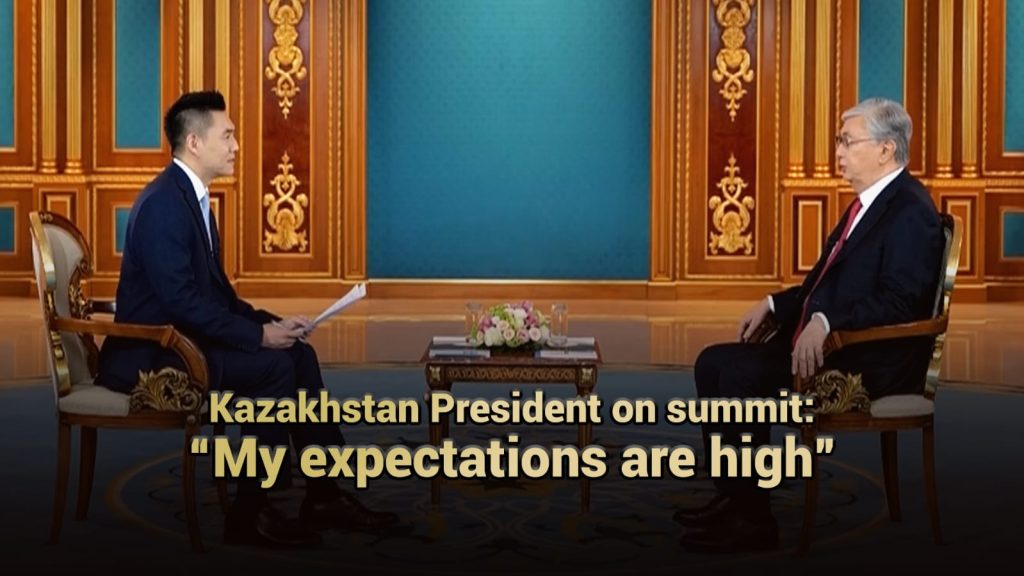What do China-Central Asia ties mean for a turbulent world?

Beijing, The Gulf Observer: China is to hold the first China-Central Asia Summit, a head-of-state level gathering, in China’s northwestern city of Xian next week. The summit, a milestone for China-Central Asia ties will draw a new blueprint for China-Central Asia relations and usher in a new era of cooperation, according to the Chinese Foreign Ministry.
Experts say different from “isolating” or “decoupling”, the summit will further highlight the fact that China and Central Asia share a lot of common interests and their cooperation will not only bring tangible benefits to the people of China and the Central Asian countries but will serve the well-being of the world.
China-Central Asia ties valuable
Currently, the Central Asian countries are experiencing political reforms and economic transformations so they’re all in need of mutual respect and opposing external interference to create a favorable developing environment for their countries, which is also pursued by China, Ju Hao, associate research fellow in the Chinese Academy of Social Sciences, told CGTN in a recent interview.
He predicted that issues dominating the highest level of meetings between China and the Central Asian countries will be wide-ranging, including political, economic, security and people-to-people exchange, and economic cooperation in energy, agriculture, green economy and other sectors will be key topics.
Kairat Sarybay, executive director of the Secretariat of the Conference on Interaction and Confidence Building Measures in Asia (CICA) told CGTN on Wednesday that the development of Central Asia will promote the development of Asia as a whole. He believes that the summit will inject new impetus into the further development of China-Central Asia relations.
Economic benefits
China in 2013 proposed the Belt and Road Initiative (BRI), aiming to build a trade and infrastructure network connecting Asia with Europe. For many years, China has been a major investor in Central Asia, providing the region with connections and projects, and the Central Asia countries have been providing China with energy, ores, manufacturing devices and other products.
The cooperation has significantly increased the logistical capabilities of Central Asia and improved people’s livelihood in all six countries. For example, the Tajikistan Wahdat-Yawan railway, invested by China and completed in 2016, has become an international railway traffic hub connecting China, Tajikistan, Afghanistan and Iran; and the upgrading project of Bishkek Thermal Power Plant (TPP), the largest but almost worn-out power utility in northern Kyrgyzstan had restored heat and hot water providing to capital residents since 2017.
Besides, the China-Central Asia Gas Pipeline, the longest gas tube in the world that started operation in 2009, had delivered a total of 423.2 billion cubic meters of natural gas to China by the end of 2022. It starts from Turkmenistan, passes through central Uzbekistan and southern Kazakhstan and eventually enters China’s northwestern region of Xinjiang.
“The BRI is about achieving global growth. With Global development, we can achieve the principles of global security,” Sarybay said, adding he believes the BRI serves the well-being of the world and global development.
Common security interests
While economic ties have flourished, common interests in security have also provided a framework for China’s cooperation with Central Asia.
Last month, State Councilor and Foreign Minister Qin Gang chaired the fourth China-Central Asia Foreign Ministers’ Meeting in Xi’an. Aside from consensus on economic cooperation, expanding security collaboration was also stressed because of new risks and challenges in the region, especially the chaos caused by U.S.’ hasty withdrawal from Afghanistan.
Experts say China and the Central Asian countries are all concerned about the spillover of unrest in Afghanistan and the spread of extremists and terrorists. Their need for security cooperation has always been existing and is increasing now.
The current institutional grouping focused on security between China and Central Asia is the Shanghai Cooperation Organization (SCO). Through it, China and the Central Asian countries have been jointly combating terrorism, separatism and extremism, cracking down on drug trafficking and fighting other cross-border crimes.
Nevertheless, after considering each country’s specific needs, China also develops security cooperation with the countries in the region on a bilateral level. In August 2021, following the U.S.’ announcement of withdrawal from Afghanistan, China and Tajikistan jointly held a counter-terrorism exercise to cope with the growing threat posed by terrorist groups that were migrating towards Afghanistan’s northern region, which borders both China and Tajikistan.
Commenting on views that China’s growing presence in Central Asia may disrupt the regional geopolitical balance, Kazakhstan President Kassym-Jomart Tokayev told CGTN in a recent exclusive interview that such concerns are unnecessary because intentions of China-Central Asia cooperation are “open and sincere”.
“China has become a juggernaut in terms of its economic development. We should acknowledge the role of China, and we need to build a very good relationship with the country,” Tokayev said.( Courtesy CGTN)


